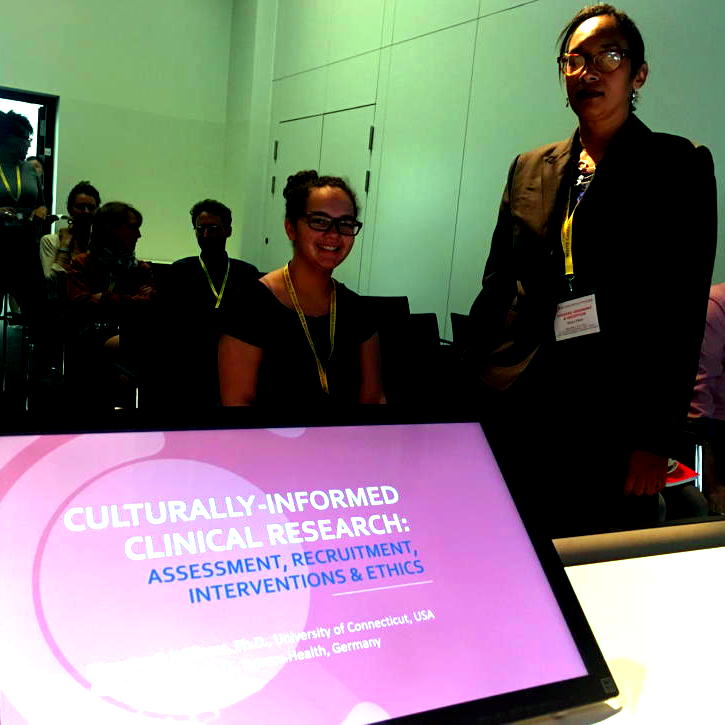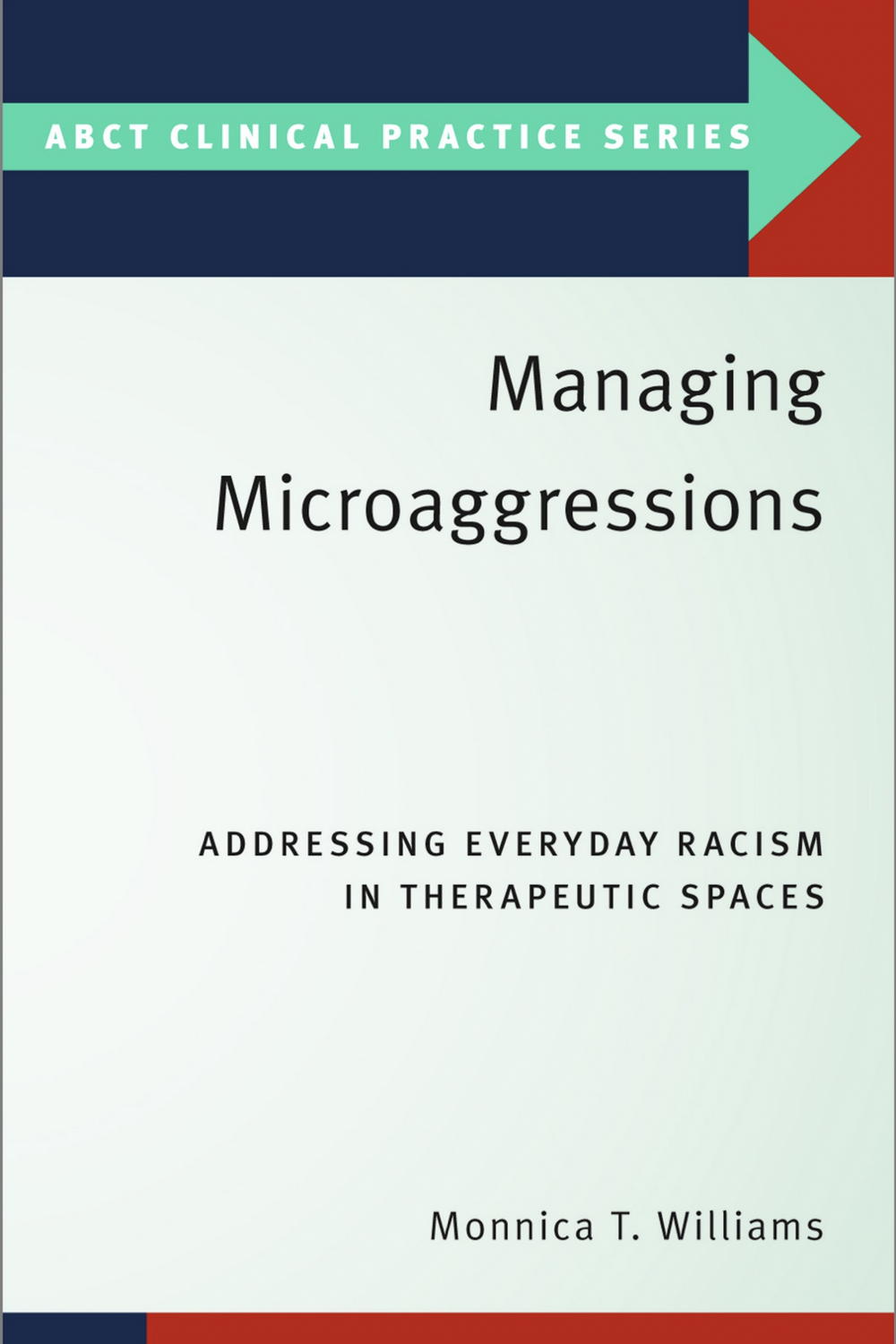
Culturally-Informed Research
Funders, sponsors, and consumers are increasingly expecting research to reflect a diversity of perspectives and lived experiences. Dr. Monnica Williams is an expert in this area and is available to assist investigators in developing culturally-sensitive and appropriate studies.
Culturally-Informed Research Design
Expertise in culturally-sensitive recruitment methodology and study design
Most researchers would like to be culturally sensitive in the design of their research projects, but may not know how to effectively implement this. Research is made culturally appropriate through an ongoing series of substantive, methodological additions and adaptations designed to mesh the process of inquiry with the cultural characteristics of the groups being studied. Researchers should include cultural considerations in the pretesting and planning of research, selection/translation of instruments, recruitment, collection of data, and analysis and interpretation of findings. These adaptations have a cumulative effect of rendering projects culturally-sensitive and in building culturally-informed research. Dr. Williams is available to consult on study design by university faculty and community organizations.
Recruiting Underrepresented Groups
In 1993, the National Institutes of Health issued a mandate that funded research must include adequate participation by racial and ethnic minority groups, and researchers were required to include in their proposals strategies by which they would achieve diversity in their samples. Dr. Williams has been very successful in efforts at inclusion of people of color in her own studies and has published papers on culturally-sensitive recruitment methodology. She is available as a consultant and research study advisor for a variety of projects for researchers and community organizations.

Research Resources
Online Training
Williams, M. T. (recorded). Culturally-Informed Outreach & Clinical Research: Assessment, Recruitment, Interventions & Ethics. TZK Seminars. 3 CEs
Related Papers
Recruitment
Williams, M. T., Reed, S., & Aggarwal, R. (2020). Culturally-informed research design issues in a study for MDMA-assisted psychotherapy for posttraumatic stress disorder. Journal of Psychedelic Studies, 4(1), 40–50. https://doi.org/10.1556/2054.2019.016
Williams, M. T., Tellawi, G., Wetterneck, C. T., & Chapman, L. K. (2013). Recruitment of ethnoracial minorities for mental health research. The Behavior Therapist, 36 (6), 151-156.
Williams, M. T., Beckmann-Mendez, D., & Turkheimer, E. (2013). Cultural barriers to African American participation in anxiety disorders research. Journal of the National Medical Association, 105(1), 33-41.
Williams, M. T., Proetto, D., Casiano, D., & Franklin, M. E. (2012). Recruitment of a hidden population: African Americans with obsessive-compulsive disorder. Contemporary Clinical Trials, 33(1), 67-75.
Foa, E., & Williams, M. T. (2010). Methodology of a randomized double-blind clinical trial for comorbid post-traumatic stress disorder and alcohol dependence. Mental Health and Substance Abuse: Dual Diagnosis, 3(2), 131-147.
Related Papers
Research Inclusion & Representation
Misra, A., Bryan, A., Faber, N. S., Pereira, D. P., Faber, S., Williams, M. T., & Skinta, M. D. (2023). A systematic review of inclusion of minoritized populations in randomized controlled trials of Acceptance and Commitment Therapy. Journal of Contextual Behavioral Science, 29, 122-130. https://doi.org/10.1016/j.jcbs.2023.05.008
Grau, P., Kusch, M. M., Williams, M. T., Loyo, K. M., Zhang, X., Warner, R. C., & Wetterneck, C. (2022). A review of the inclusion of ethnoracial groups in empirically-supported posttraumatic stress disorder treatment research. Psychological Trauma: Theory, Research, Practice, and Policy, 14(1), 55–65. https://doi.org/10.1037/tra0001108
Michaels, T. I., Lester, L., de la Salle, S., & Williams, M. T. (2022). Ethnoracial inclusion in randomized, double-blind, placebo-controlled clinical trials of ketamine in the treatment of mood disorders. Journal of Studies on Alcohol and Drugs, 83(4), 596–607. https://doi.org/10.15288/jsad.2022.83.596.
Strauss, D., de la Salle, S., Sloshower, J., & Williams, M. T. (2022). Research abuses against people of colour and other vulnerable groups in early psychedelic research. Journal of Medical Ethics, 48(10), 728-737. https://doi.org/10.1136/medethics-2021-107262
Michaels, T. I., Lester, L., de la Salle, S., & Williams, M. T. (2022). Ethnoracial inclusion in randomized, double-blind, placebo-controlled clinical trials of ketamine in the treatment of mood disorders. Journal of Studies on Alcohol and Drugs, 83(4), 596–607. https://doi.org/10.15288/jsad.2022.83.596.
Mendoza, D. B., Williams, M. T., Chapman, L. K., & Powers, M. (2012). Minority inclusion in randomized clinical trials of panic disorder. Journal of Anxiety Disorders, 26(5), 574-582. https://doi.org/10.1016/j.janxdis.2012.02.011
Williams, M., Powers, M., Yun, Y. G., & Foa, E. B. (2010). Minority Representation in Clinical Trials for Obsessive-Compulsive Disorder. Journal of Anxiety Disorders, 24, 171-177.


